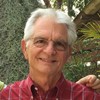Seeing God In Action Through COVID-19 Eyes
- Blog Seeing God In Action Through COVID-19 Eyes
My wife Wannee went to the Philippines on Leap Year Day. Why would she want to go there, especially with coronavirus on the horizon? So that she, an OMF short-term worker coordinator, could see some highlights of integrated (holistic) outreach there in a two-week period. Short-term-worker coordinators there and new friends took her on an amazing journey to see outreach in three parts of the country.
What does outreach look like? In Davao City, a nurse took Wannee to a maternity center offering pregnancy care to local women; to a Muslim urban poor ministry teaching people healthy diets and skills in making handicrafts that supplement their income; and to a private hospital focusing on children’s disabilities.
In Manila, Wannee joined OMF physicians who screen, diagnose, and follow up TB patients. They also train community health volunteers who can, in turn, help family, neighbors and friends with TB. Other outreach includes providing scholarships to students, sports ministries such as basketball tournaments, and health and nutrition training. In the Muslim community as well as elsewhere, they teach young children how to read and adults Christian values like honesty, obedience, and truth.
In Samar, Wannee experienced a very poor community with an older OMF Filipino missionary. That missionary and others support local pastors through training and discipleship.
When Wannee arrived in Manila over two weeks ago, only six cases of COVID-19 had been reported in the country. By the time she returned to the megacity, there were over 100 and the government was just announcing a lockdown of all domestic travel. She made it out just in time! She is self-quarantining at home. One virtual meeting after another!
Reflecting on that lockdown due to COVID-19, a veteran of ministry in the Philippines wrote:
“My biggest insight is about the change in the majority people’s worldview the past 30 years. Throughout the 1990s, a fatalistic outlook was very evident. I don’t think the government would have implemented these kinds of restrictions back then. They would have let people make their own decisions. Most people would have kept doing what they always do, thinking, ‘If I get the virus and die, it was my time to die.’ Plus, many of the relatively poor people I knew in the provinces did not want to live a long life. They were happy to die in their 50s and not reach the point of becoming a financial burden to their children. Now, the gospel has touched many of their lives. The economy has strengthened significantly. People have a higher quality of life and want to live longer. That makes them proactive. They exercise, eat better, and are happy to obey these restrictions.”
Download full ebook "A Healthcare Worker's Response to COVID-19" here
Related Content





Comments